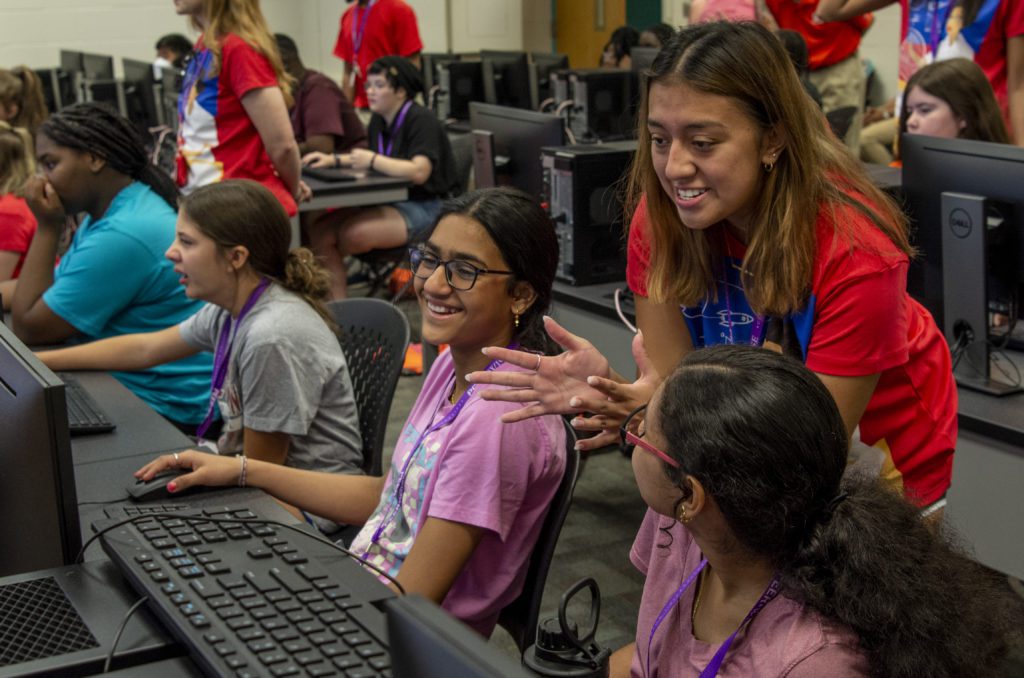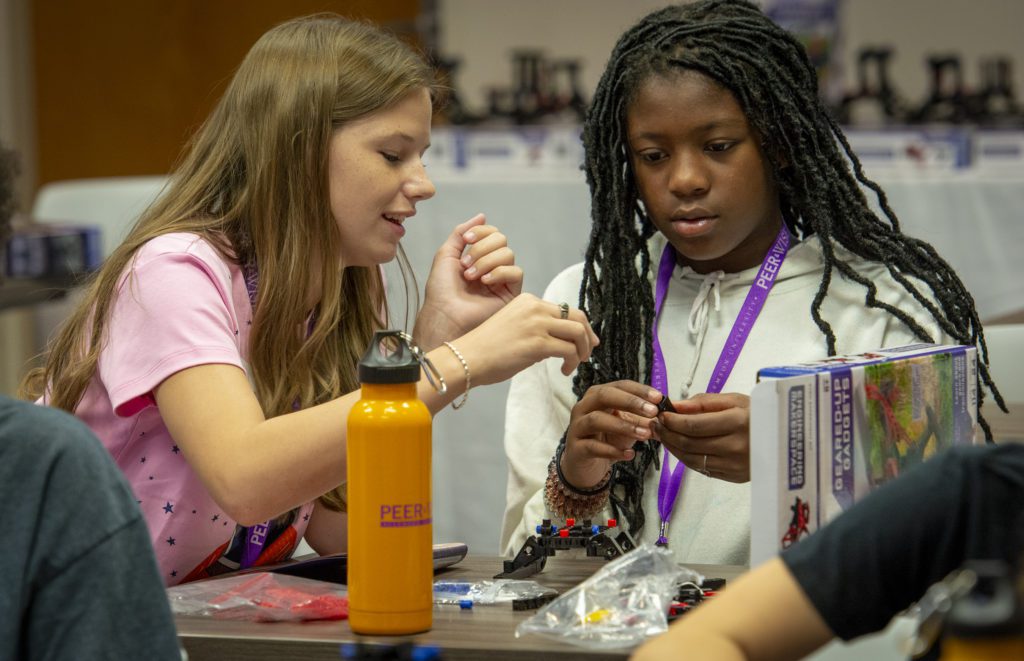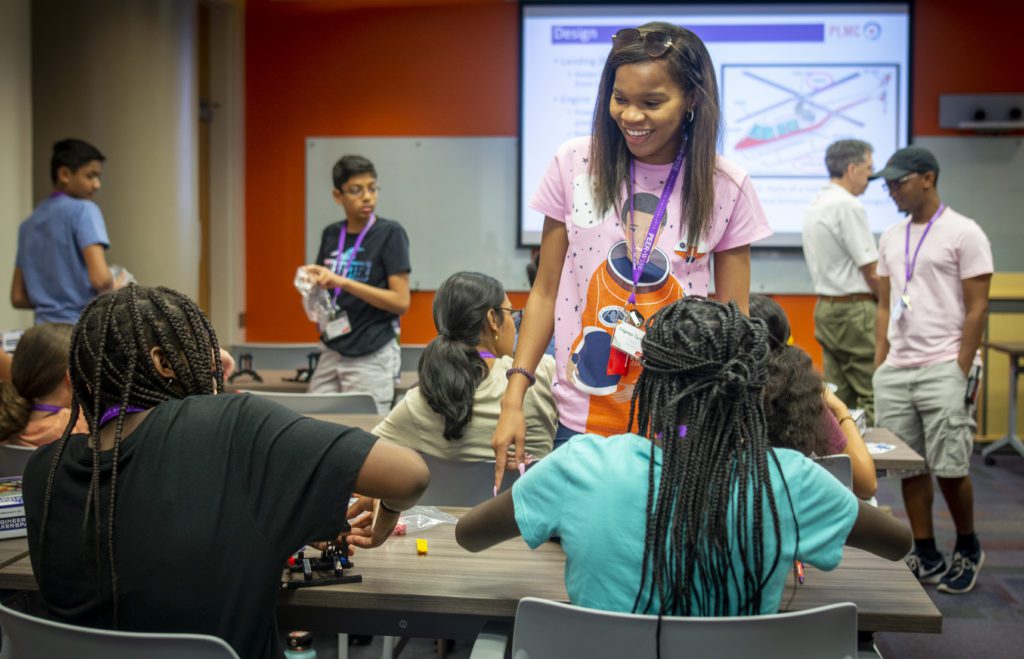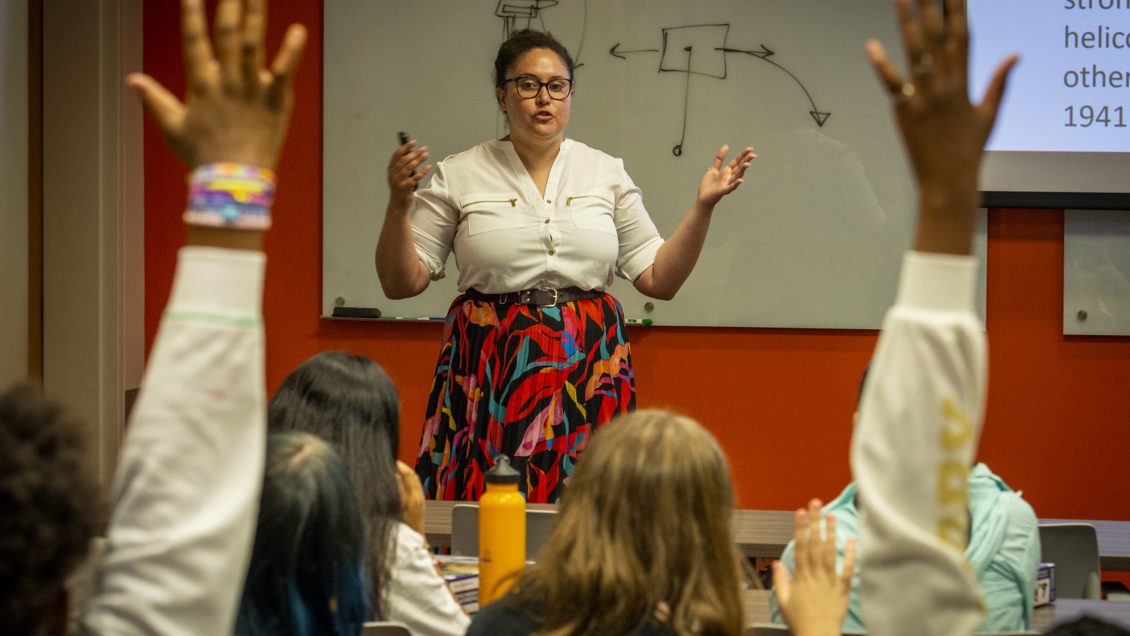More than three dozen rising 7th and 8th-graders from underserved communities around South Carolina were given a unique college experience on June 19–24 in a summer camp designed to change their lives. Project WISE (Women in Science and Engineering) is a one-week residential camp held to introduce young people to careers in STEM (Science, Technology, Engineering and Math).
The program is a special opportunity for young people to hang out for a week with like-minded peers and experience what it’s like to be a college student. It is the product of a long-standing partnership between Clemson University and Duke Energy, which has funded the camps since the early 1990s.
Women hold close to half of all jobs in the U.S. economy but account for less than 25 percent of America’s STEM workforce, according to a U.S. Department of Commerce report.
STEM jobs also pay 33 percent more than comparable non-STEM jobs and hold the key to the country’s innovative capacity and global competitiveness, making programs like WISE even more important to the nation’s future.
Amanda Dow, manager of the Duke Energy Foundation that sponsors the program, said it’s a partnership that makes sense for the company.

“Since our founding more than a century ago, engineering has been the lifeblood of everything we do at Duke Energy,” Dow said. “That’s why we look for opportunities to invest in the future engineering workforce that will lead our company and our state in the decades to come. That workforce must bring diverse perspectives to the table, and that’s why programs like this, that encourage young women to pursue careers in science and engineering are so important.”
One of the most impactful aspects of Project WISE is how it taps into the deep well of talent on the Clemson campus to employ graduate and undergraduate STEM students as teachers and camp counselors. In this way, the young participants get a chance to interact with adults who grew up under similar circumstances and are now thriving in the world of STEM.
Skyler Holland, a rising junior at Clemson studying electrical engineering, was one of the camp counselors this year. She applied for the job because she went through the WISE program herself when she was a middle school student in Farmville, South Carolina and it changed her life.
“I’m having so much fun. This camp is why I picked my major,” she said. “In the electrical engineering class my first year, we did little robot crabs that were solar-powered, and I loved it. Then the next year, we did this little solar-powered dinosaur and I said, ‘This is what I want to do with my life.’”

Groups of young people participating in Project WISE could be seen all over campus during the week, socializing during mealtimes in the McAlister Dining Hall or walking between classrooms in the Flour-Daniel building and Freeman Hall, accompanied by their undergraduate mentors. Classes during the week ranged from biosystems and mechanical engineering to chemistry and mathematics – topics young people might find intimidating under different circumstances. Still, Project WISE instructors strived to incorporate hands-on learning that kept the young students engaged.
In one session, participants learned to use a computer-aided design (CAD) program to render a simple gearbox with their names embedded in the body. In another, the students assembled model helicopters to learn the physics and engineering behind helicopter flight. The instructors were Clemson graduate students who used the project to teach the class about thrust, torque, gravity and gears as the dozens of small aircraft took shape in the students’ hands.
Camp counselor Dajonia Jackson, who earned her bioengineering degree from Clemson in May 2022, walked from desk to desk, observing and offering advice as the students assembled the pieces of their helicopters. Like Holland, she also went through the program when she was in middle school and came back as a counselor because it dramatically impacted her life.

“When I was in 7th and 8th grade, I wanted to be a doctor or nurse. Nobody exposed engineering to me,” said Jackson. “The WISE summer camp was the first time I saw that I could be creative. When I was younger, having that exposure opened up a lot for me. It made me want to build things and inspire others, and that’s why I’m here.”
Associate Director of WISE Beth Anne Johnson said Jackson and Holland are perfect examples of what the program aims to do.
“Overall, I hope every young person who participates in our programs sees that they belong; that math, science, and engineering are for everyone,” said Johnson. “Our end goal is to see men, women and all genders included in the workforce. We’re trying to send that message and plant that seed of belonging so that everyone’s future is brighter.”
When asked what she would tell a young person who thinks science and engineering are boring, Holland said she’d simply implore them to give it one chance and be patient.
“It’s worth it,” she said. “You must push through the boring stuff to get to the hands-on stuff, and that’s when it gets exciting, especially for young people. Even math can be hands-on in a way — so give it some time. You’re going to love it.”

